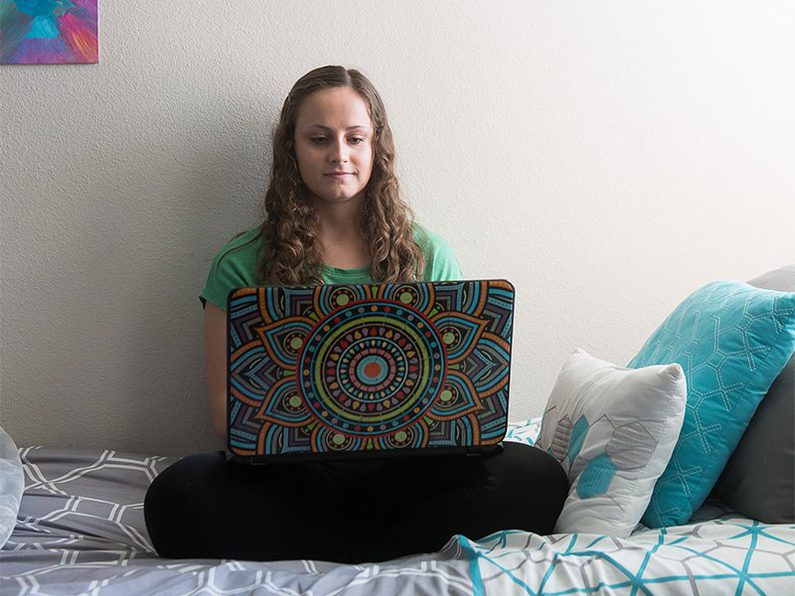The Single Strategy To Use For Bioinformatics Tutor
The Single Strategy To Use For Bioinformatics Tutor
Blog Article
Not known Facts About Bioinformatics Tutor
Table of ContentsFascination About Bioinformatics TutorThe Only Guide for Bioinformatics TutorThe 4-Minute Rule for Bioinformatics TutorThe Bioinformatics Tutor StatementsThe Best Strategy To Use For Bioinformatics Tutor
Of the total amount individuals associated with the training, 80% were students from public greater education establishments, while the staying 20% came from exclusive institutions. To get approved for a certificate of engagement, trainees were called for to go to at the very least 90% of the overall training hours. As an outcome of this demand, an impressive 95% of the participants efficiently acquired their certifications, having not only fulfilled the minimum participation standards but additionally completed all designated tasks throughout the training.
Throughout the height of the COVID-19 pandemic, particularly in between June and August 2020, the job group was entrusted with organizing specialized training in bioinformatics. This training was especially focused on trainees from the study group Center for Research in Applied Computing at the Federal College of Pará (UFRA) The adaptation to remote discovering platforms because of the pandemic developed an opportunity to discover new mentor techniques and digital tools that boosted both reach and performance.
To react to the expanding need in the computer and life scientific researches areas, a sophisticated training course was presented in 2020 labelled Intro to Maker Discovering. This training course was created to supply an obtainable yet thorough review of Expert system methods, particularly as applied in bioinformatics. The program was accomplished over 3 months, from October to December 2020, and was supplied completely online with the Google Meet platform. This digital style allowed participation from students throughout Brazil, a number of whom may not have had the opportunity to participate in in-person sessions.
Everything about Bioinformatics Tutor
Approximately 50% of the total training hours were devoted to sensible tasks where students developed smart versions and applications in an array of scientific domains, including genetics, molecular biology, and environmental information evaluation. These systems made it possible for students to engage in real-time data manipulation, version training, and formula testing.
Sixty of them were affiliated with numerous greater education and learning organizations in the state of Pará, while the staying twenty came from institutions found in five various other Brazilian states. By introducing Artificial Knowledge in a appropriate and useful context, the initiative served to link the void between theory and real-world application, giving pupils with a strong foundation for future study or work in the field.
The training initiative created component of a wider scholastic outreach effort called the Bioinformatics when traveling job. This project has, over the years, presented lots of students to the globe of bioinformatics and computational biology. The events held under this umbrella initiative have actually taken location throughout several regions and years, as summed up in Table 1 (Listing of occasions, places, years, and total varieties of students and instructors)
Among the most remarkable end results of the Bioinformatics when driving campaign has been its payment to the growth of decentralized study groups. Numerous of these groups, originally combined by their participation in training events, have actually considering that gone on to create independent scientific research study in collaboration with regional scholastic organizations. The training not just fostered clinical reasoning within the context of bioinformatics but also triggered collaborative connections that extended beyond the training setting. These collaborations have actually led to boosted neighborhood scientific performance and added meaningfully to the growth of the more comprehensive bioinformatics community in Brazil.
Our Bioinformatics Tutor Diaries
The project itself was conceptualized and organized by MB and RR, who oversaw the planning and implementation of each step. Lectures were delivered by a multidisciplinary team containing megabytes, FA, EF, KP, JS, DM, SN, LP, LG, RR, a/c, and ih. The exact same team, omitting IH and RR, likewise functioned as tutors for the useful training modules. Financing for the project was provided via the give 88887.200562/ 2018-00 from CAPES. The writers prolong their thankfulness to everybody who contributed to the understanding of this task, whether straight or indirectly, since its beginning.
The Federal College of Pará's Workplace of Research study (PROPESP/UFPA) also gave monetary support, especially for the manufacturing of the final manuscript. The writers state no financial or business disputes of interest that can have influenced more tips here the study. All point of views and interpretations shared in this short article are solely those of the authors and do not always show those of their corresponding institutions, the publisher, editors, or customers entailed in the publication procedure.

Little Known Questions About Bioinformatics Tutor.
From a pedagogical point of view, the teaching technique used in the training was purposefully interactive. Classes were performed in a way that urged trainee participation and conversation, going beyond memorizing memorization to explore exactly how concepts are established, used in life, and checked in academic settings. The educational viewpoint concentrated on nurturing both solid and struggling trainees, giving individualized assistance, and structure confidence with continual mentorship and patience.

Each group, containing about 36 individuals, was supported by 3 coaches-- a lot of whom were postdoctoral scientists with specialized knowledge. These mentors not just helped make the team tasks yet also promoted their execution, ensuring that each study concern was both suitably challenging and pertinent. The goal was to give a biologically practical context that participants can discover see page through open-ended purposes and access to curated datasets.
For added insights right into the methodology and results of this project-based learning technique, readers are guided to S1 Text, that includes comprehensive descriptions of the instructional framework, examination approaches, and job motifs used in the training sessions.
The Of Bioinformatics Tutor
Of the total amount individuals entailed in the training, 80% were students from public higher education institutions, while the staying 20% came from personal organizations. To qualify for a certificate of involvement, trainees were needed to attend at the very least 90% of the total training hours. Significantly, beyond the trainees who signed up in the training sessions, 7 knowledgeable trainers took part in supplying the training courses, while three committed study professors worked with the overall training procedure. Around 50% of the complete training hours were committed to functional tasks where students developed smart designs and applications in a variety of clinical domains, including genetics, molecular biology, and environmental information evaluation. The training not just promoted clinical thinking within the context of bioinformatics yet additionally triggered collaborative connections that expanded past the training setting.
Report this page